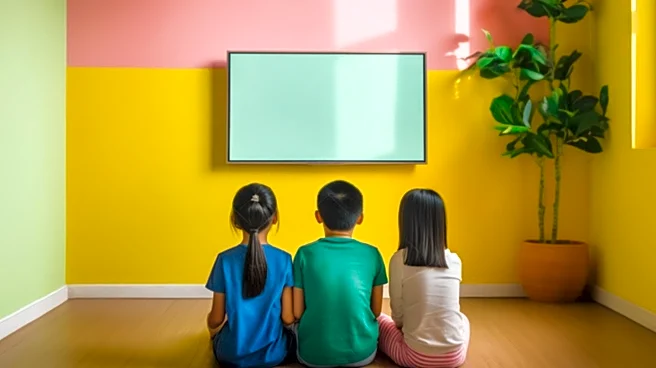What is the story about?
What's Happening?
A recent study published in JAMA Network Open has found that young children who spend more time in front of screens tend to perform worse on standardized tests in reading and math during their elementary school years. The research tracked over 5,400 children from early childhood through grades three and six, providing strong evidence that screen time may have lasting effects on academic achievement. The study revealed that each additional hour of daily screen time in early childhood was associated with a roughly nine to ten percent lower likelihood of achieving higher test scores in these subjects. Dr. Sanjeev Kothare, division director of pediatric neurology at Cohen Children's Medical Center, emphasized the importance of returning to traditional activities like reading stories and using actual books, as modern digital platforms may be hampering children's development.
Why It's Important?
The findings of this study highlight the potential negative impact of excessive screen time on children's cognitive development and academic performance. As screen time becomes increasingly prevalent in modern society, understanding its effects is crucial for parents, educators, and policymakers. The study suggests that limiting screen exposure could support stronger academic foundations and healthier brain development in children. This research may prompt the American Academy of Pediatrics and other health organizations to advocate for stricter guidelines on screen time for young children, potentially influencing public policy and educational practices.
What's Next?
Future studies may explore the use of brain imaging to compare the neural networks of children with high screen use against those with limited exposure. Researchers are also calling for further investigation into how the content and context of screen use, such as educational programming or co-viewing with parents, might affect outcomes differently. Early and targeted interventions developed in collaboration among parents, schools, and health professionals could help curb excessive screen exposure and support stronger academic foundations.
Beyond the Headlines
The study raises ethical and cultural questions about the role of technology in children's lives and the responsibility of parents and educators to manage screen time effectively. It also highlights the need for a balanced approach to technology use, considering both its educational benefits and potential drawbacks.
















